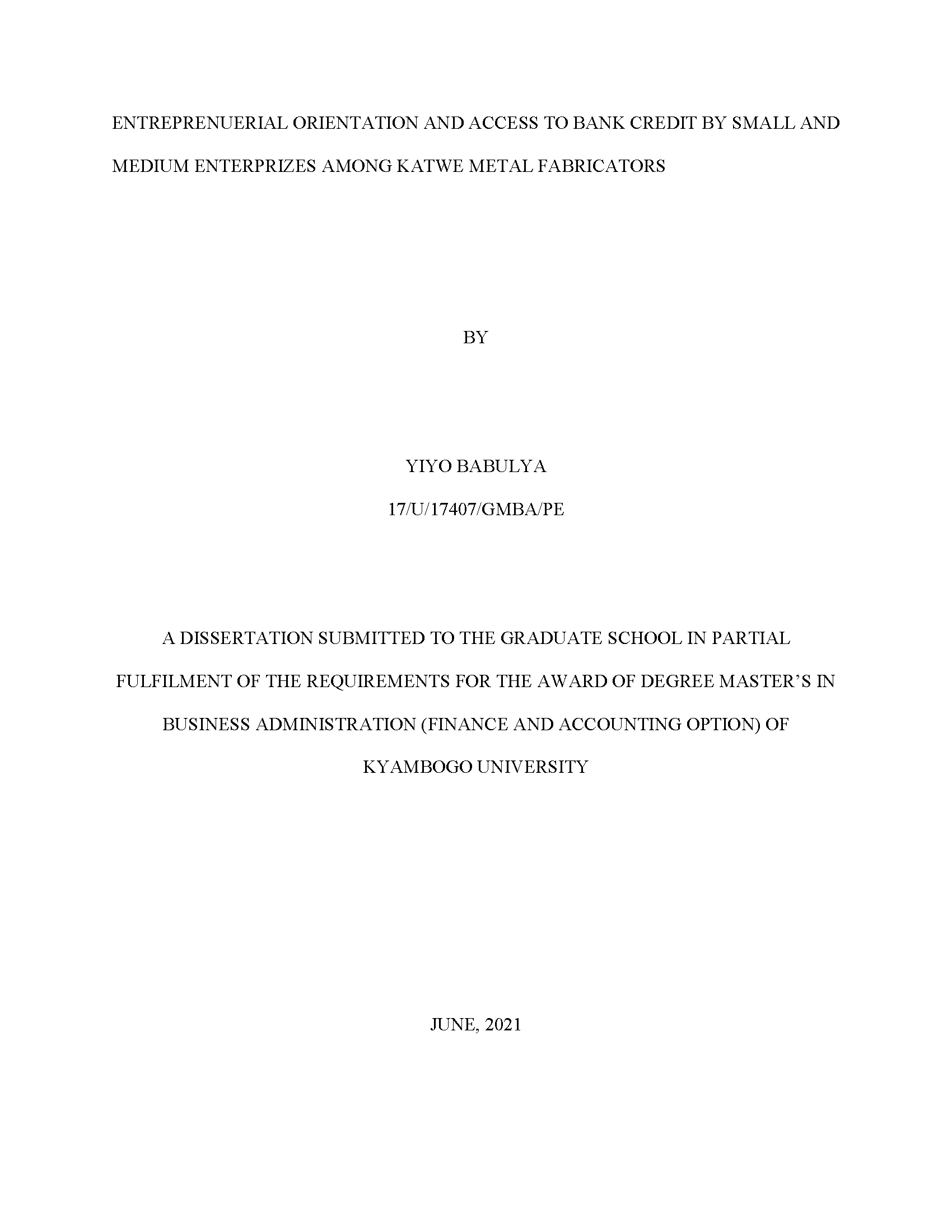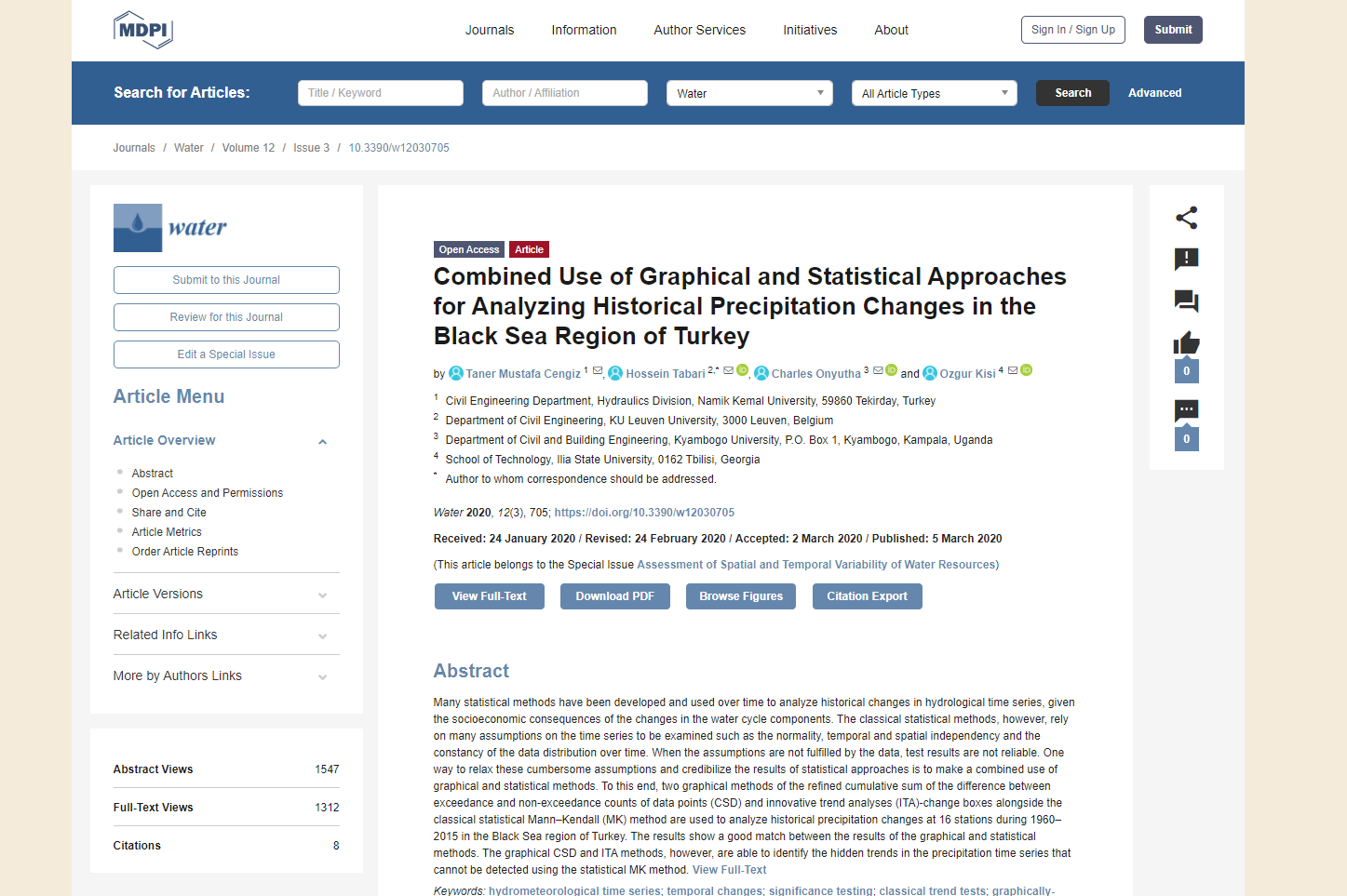Organization's strategic orientation and intention to leave among staff : a case study of staff of National Housing and Construction company Limited, Kampala
Abstract
This study sought to investigate the influence of organization’s strategic orientation on staff intention to leave the public institutions of Uganda. The specific objectives of the study included; (a) to examine the influence of customer orientation of the organization on intention to leave work, (b) to analyze the influence of learning orientation of the organization on intention to leave work, and (c) to assess the influence of entrepreneurial orientation of the organization on intention to leave work. The study was guided by expectancy confirmation theory. A case study research design was utilized in the study, where the study sample comprised of 45 out of 79 staff members of National Housing and Construction Company Limited. Both quantitative and qualitative data analysis techniques were adopted. Regression was used to determine the influence of organization’s strategic orientation of the organization on staff intention to leave. The study established that both learning orientation (Adjusted R2=0.073, P-value<0.05) and entrepreneurial orientation (Adjusted R2=0.080, P-value<0.05) had significant influences on staff intention to leave work. However, customer orientation had no significant influence on staff intention to leave work (Adjusted R2=0.016, P-value>0.05). The study therefore concluded that learning orientation and entrepreneurial orientation were good predictors of staff intention to leave hence organizations that encourage such orientations may register reductions in staff intention to leave work. The study therefore recommends public institutions especially NHCCL to promote learning orientation through encouraging constant research and innovations, understanding current likely future changes in the business environment. There is also a need for public institutions especially National Housing and Construction Company Limited to encourage entrepreneurial orientation through involving employees into decision making especially when there is a need to develop new ideas that are beneficial for the institution.
Collections
Related items
Showing items related by title, author, creator and subject.
-
Entreprenuerial orientation and access to bank credit by small and medium enterprizes among Katwe metal fabricators
Babulya, Yiyo (Kyambogo University, 2021-06)The study examined the entrepreneurial orientation and Access to Bank credit controlled by the size of the firm among Metal Fabrication Small and Medium Enterprises; a Case of Katwe. The study was motivated by the dwindling ... -
Combined use of graphical and statistical approaches for analyzing historical precipitation changes in the black sea region of Turkey
Cengiz, Taner Mustafa; Tabari, Hossein; Onyutha, Charles; Kisi, Ozgur (MDPI: Water, 2020-03-05)Many statistical methods have been developed and used over time to analyze historical changes in hydrological time series, given the socioeconomic consequences of the changes in the water cycle components. The classical ... -
Kyambogo University August 2019 Newsletter
Kyambogo University (Kyambogo University, 2019-08)Hon. Tayebwa Thomas, the Member of Parliament for Ruhinda North has advised members of the Kyambogo University Academic Staff Association (KYUASA) to dialogue embrace dialogue as a way of solving misunderstandings, discontent ...



